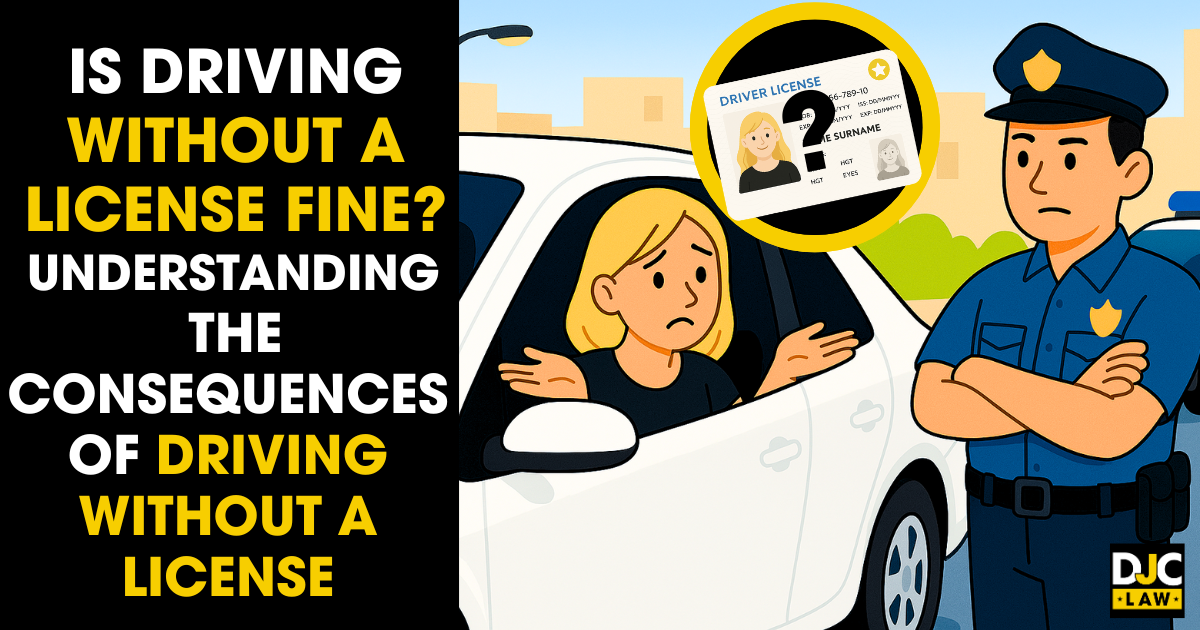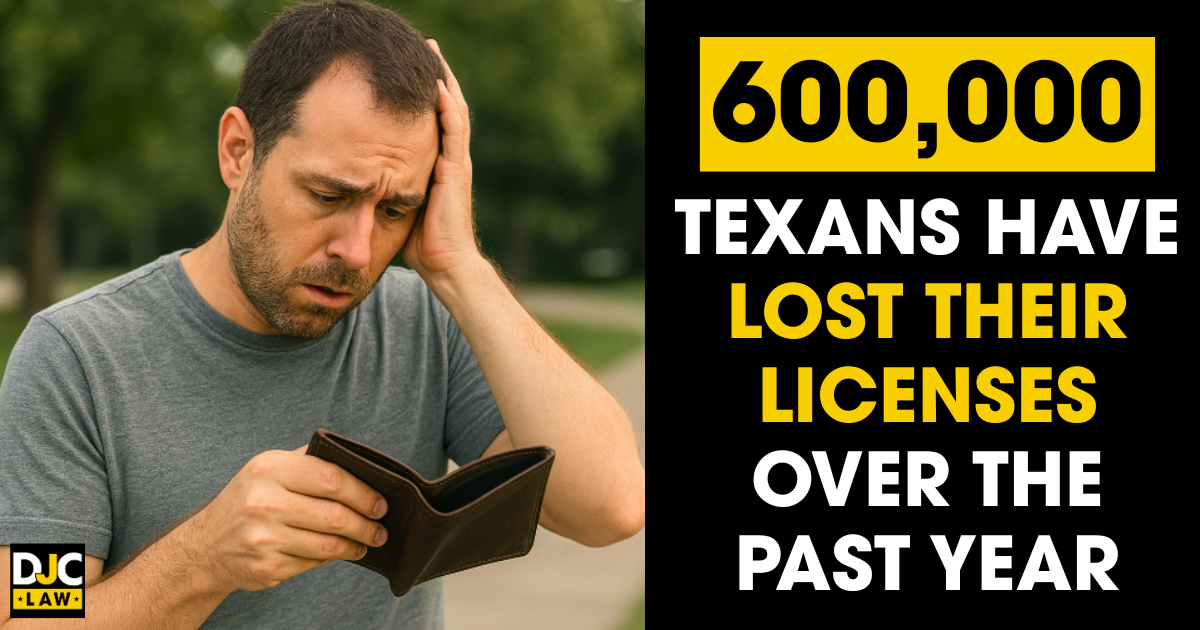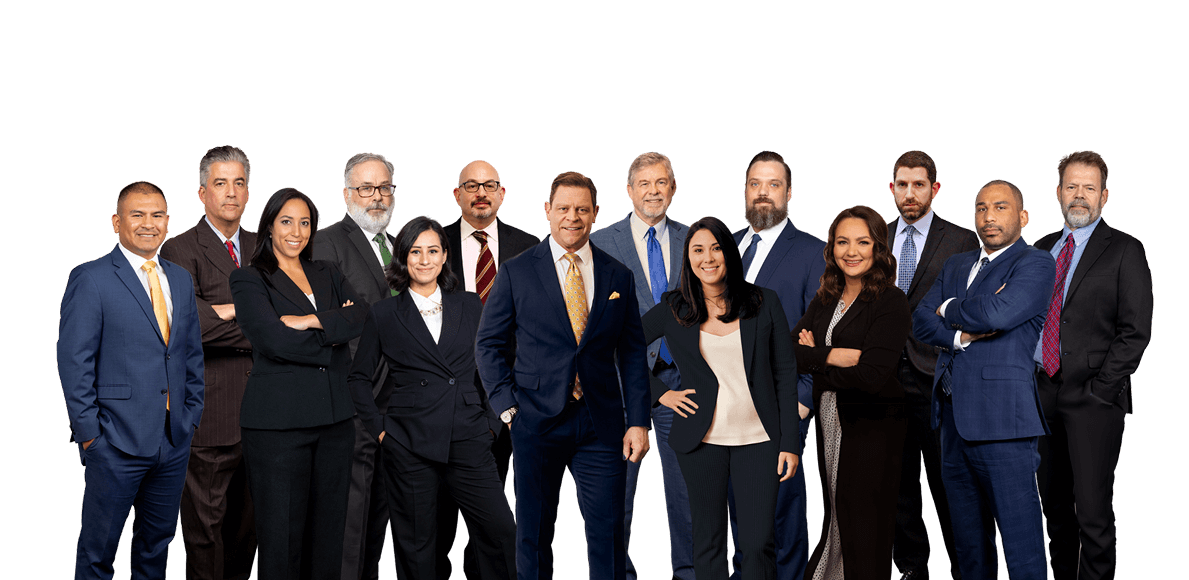
Driving without a license on a public roadway is illegal. No ifs and no buts. If you choose to drive without a valid license, you face a variety of legal consequences, including fines and jail time. Moreover, if you cause an accident when unlicensed, you’re looking at even more serious consequences. —and you may need an experienced Austin car accident lawyer to help navigate the complex legal aftermath.
Despite this, TXAN News 24 still reports that an estimated seven million Americans operate vehicles without a license. These include those with expired licenses and those who never had them in the first place.
So, before you head out onto the roads, think twice. Here’s what you must know about the consequences of driving without a valid driver’s license.
Key Takeaways
- All states require all drivers on public roadways to hold a valid driving license. Not having one is always an offense.
- Driving without a license isn’t a traffic violation like breaking the speed limit but a criminal act. Each state determines how offenders are punished.
- In Texas, penalties for driving without a license include fines, probation, increased auto insurance premiums, and jail time.
- Some of the most common reasons people drive without a license include financial hardship, DPS accessibility problems, and lack of knowledge about the law.
- Convictions for driving without a license impact your insurance, with increased premiums, denied coverage, and trouble getting your coverage reinstated in the future.
- Several legal defenses for being charged for driving with no license exist, such as emergencies, improper traffic stops, and having a valid out-of-state license.
- Get in touch with a qualified traffic attorney to help fight your charges and increase your chances of getting the charges dismissed or reduced.
Defining Driving Without a License: What You Need to Know
Driving without a license doesn’t always mean someone who doesn’t have one. It can also mean driving when your license is expired, suspended, revoked, or invalid. Each state will take its own approach to dealing with offenders.
According to the Texas Transportation Code Section 521.021, nobody can operate a motor vehicle on any public highway in Texas without a valid driver’s license. Furthermore, the license must be relevant to the vehicle type you’re operating.
Legal Framework Surrounding Unlicensed Driving
A driver’s license is an official document issued by the authorities giving you permission to operate a motor vehicle on public roadways. Operating any motor vehicle without a license is illegal in every state and territory in the country, with each state determining the relevant penalties for offenders.
Another point to remember is that there are different classes of licenses. These enable you to operate various types of vehicles, including cars, motorcycles, and 18-wheelers. Obtaining a driving license doesn’t allow you to operate other classes of motor vehicles without fulfilling extra requirements.
Note that licensing requirements only apply to public roads. You don’t need a license to operate a motor vehicle on private land.
Variations in State Laws and Regulations
Texas may apply civil and criminal penalties if caught driving without a license. In particular, if you’re involved in an accident, this could escalate the situation. It’s more common than you think, with the U.S. Department of Transportation revealing that drivers without valid driving licenses cause one in five fatal crashes.
Despite every state requiring a valid driver’s license, each one will take different approaches to offenders.
For example, California allows your vehicle to be impounded on the spot if caught. Arizona requires you to have a license, but you don’t have to have a physical license on your person while driving. Likewise, Florida will escalate from misdemeanors to more serious criminal charges based on the number of offenses.
As you can see, there’s a massive amount of variation between the states, so it’s vital to understand where you stand.
Common Reasons for Driving Without a License
Driving without a license may sound like madness, but there are reasons why someone might not be driving without a license. According to NBC News, as many as 600,000 Texans have lost their licenses over the past year.

The exact number of unlicensed drivers in the Lone Star State is unknown, but all of them will have their reasons. Here are the three most common ones.
License Suspension and Revocation
Some drivers may have had their licenses suspended or revoked due to previous traffic offenses. It’s impossible to tell how many have had their licenses suspended or revoked in this way.
Still, the Fort Worth Star-Telegram indicated 6,617 unlicensed drivers were involved in deadly crashes in 2023, the highest ratio of any state. It’s an indication of the sheer scale of the problem in Texas.

Unawareness of Licensing Requirements
Some Texans are unaware of the licensing requirements that apply to them. Most people know they need some form of license, but some find themselves in trouble because they’re driving with the wrong license type.
Other situations could include a young person driving with a learner’s permit at the wrong time. For example, Texas implements strict curfew requirements on holders of learner’s permits. Violating these rules is similar to not having a valid license because you’re not following the terms and limitations of your permit.
Financial Hardships and Accessibility Issues
Obtaining your license to legally drive in the first place can easily cost a few hundred dollars, if not more. Low-income individuals often cannot afford the costs but still require transportation, especially those in rural areas. Another issue is that many Texans who live in remote areas may not have a driving school or a Department of Public Safety (DPS) office within easy reach.
These often lead to a vicious cycle of:
- Fines and other penalties for driving without a valid license.
- Driving because there’s no other option.
- More fines and penalties.
- Driving because there’s no other option.
Gradually, the penalties grow and grow until persistent offenders find themselves facing the very real threat of incarceration.
The Legal Penalties for Driving Without a License
Driving without a license in Texas isn’t a traffic violation but a criminal offense. At best, you’ll face fines. At worst, you could face a mandatory period of incarceration, depending on the circumstances.
Unless you have an exceptional reason for driving without a license, such as a medical emergency, driving without a valid license is always illegal. Let’s discuss the penalties you’ll face in Texas.
Fines and Fees Associated With Unlicensed Driving
The fines and fees you face depend on the situation. Driving without a license isn’t the same as driving with an expired, suspended, or revoked license.
If you’ve never had a license, it’s typically classified as a Class C misdemeanor, which comes with a fine of up to $200 for a first-time offense. Your second offense within 12 months commands the same fine, but from the third offense (and subsequent offenses) within the same 12-month period could result in jail time of up to six months.
But what happens if you’ve previously been charged with driving with a suspended or revoked license?
The first offense is usually the same Class C misdemeanor with a $200 fine. However, the next charge will be upgraded to a Class B, or second degree misdemeanor charge, with increased penalties of up to $2,000 and 180 days in jail. You’ll be automatically charged with a Class B misdemeanor if you’re also uninsured, even if it’s your first offense.
Finally, if you don’t drive safely and cause an accident that results in injury or death, you’ll receive a Class A, or first-degree misdemeanor. If convicted, the fine could be as high as $4,000 plus up to one year in jail.
None of these fines include other costs, such as court fees, increased insurance premiums, and license reinstatement costs.

Possible Jail Time and Criminal Record Implications
Driving without a license is a criminal offense, meaning it will appear on a criminal background check. This can impact your ability to pursue specific employment opportunities and cause problems in the future if you also have other violations on your record.
Jail time comes into play if you’re charged with a Class B or a Class A misdemeanor. A Class B misdemeanor has a maximum incarceration period of six months, whereas a Class A misdemeanor could land you in the Big House for up to a year.
Serious cases, such as if you cause an accident or death while driving without a license, could result in third degree felony charges, which come with multi-year jail terms.
Additional Penalties for Repeat Offenders
Texas is one state that escalates punishments based on the number of offenses. Driving with an invalid license for a second time will see your Class C misdemeanor upgraded to a Class B, where jail times become far likelier.
It’s also vital to mention that judges in Texas have enormous discretion under the law regarding punishments. Regular offenders who receive a subsequent conviction could face other punishments, including:
- Automatic suspension of driving privileges
- Denial of license reinstatement
- Mandatory court appearances
- Probation
- Community service
- Mandatory driver improvement courses
Insurance Implications of Being Unlicensed
Unlicensed drivers don’t just face penalties from state authorities. Getting caught driving without a valid license for any reason impacts your auto insurance for years to come, including larger premiums and limited coverage options.
Insurers take a dim view of unlicensed drivers, classifying them as “high-risk drivers,” which means even more obstacles to driving legally in the future.
Impact on Auto Insurance Rates
Your auto insurance rates will soar if you’re convicted of driving with no license. Minor traffic violations may stay on your record for up to five years, with serious violations lasting up to a decade.
There’s no hard rule regarding how much your rates will spike, but it will add up to hundreds of dollars annually. For example, the LA Insurance company states that drivers face up to a 92% increase in rates for a DUI conviction.
With average insurance costs soaring, a single conviction for driving with an invalid license could cost you thousands of dollars over your driving career.
Limited Insurance Coverage for Unlicensed Drivers
Unlicensed drivers also face problems using their insurance. Not having a license is a clear violation of every auto insurance policy, meaning you might not be protected even if you have a valid policy.
Here’s what happens if you’re in an accident and you’re unlicensed:
- Your claim will be denied.
- All costs must be paid out of pocket.
- Vehicle impoundment, with you paying the costs.
Note that even if you don’t have a policy but are a listed driver on another policy, your insurance still won’t protect you if you’re unlicensed.
It’s also worth mentioning that many insurers may refuse to provide coverage in the future, especially for persistent offenders.
Long-Term Effects on Driving Record and Future Insurance
Your driving history receives a permanent mark on it if you’re convicted of operating a motor vehicle without a valid license. In other words, you become infinitely less insurable once you’ve been hit with an unlicensed driving conviction.
Here’s what that could look like from a driving perspective:
- Increased insurance premiums for years to come.
- Standard insurance is denied to you, forcing you to buy more expensive high-risk insurance.
- Trouble reinstating your coverage.
- No auto insurance discounts, such as safe driver and loyalty bonuses.
And your conviction will stay on your driving record for years to come. Every insurer will see it on your record in Texas for three years. However, it will remain on your criminal record unless your conviction is sealed or expunged.
Defending Against Driving Without a License Charges
All Texans have the right to defend themselves in court if they’ve been charged with a suspended or revoked license – or even if they never had a license at all.
Defending yourself against these charges m ay seem impossible because it’s such a blatant violation of the law, but there are ways to defend yourself. Sometimes, an experienced car accident attorney won’t get the ticket dismissed, but they can reduce the penalties, such as avoiding higher fines.
So, what successful defenses can be used?
Common Legal Defenses for Unlicensed Driving
It’s vital to understand that simply not having your license on you at the time can result in you being charged for driving without a valid license. Remember, the traffic officer doesn’t know whether you have a license, so they’ll use this charge liberally.
Here are some of the most effective legal defenses you can use.
The Driver Didn’t Have Their License With Them
The most common – and often best defense strategy – is that a licensed driver had forgotten or misplaced their license, so they didn’t have it at the time. Simply presenting a valid license to the court is enough to have these charges dismissed.
The Driver Didn’t Know Their License Had Been Suspended or Revoked
Some drivers may be unaware they are driving on a suspended or revoked license. This usually relates to another traffic offense, and drivers can claim they weren’t properly notified.
For example, an administrative error may have meant that the driver didn’t receive a letter, or they didn’t see their mail. After all, there’s often a lag between the suspension/revocation and when the driver receives their formal notification.
The Driver Had a Valid Out-of-State License
Are you a recent transplant from another state? Newcomers sometimes get caught out because they have an out-of-state license they haven’t yet exchanged for a Texas driving license.
In Texas, the usual timeframe is 90 days from when you moved to the state. It could be a valid defense if you can prove that the dates match up and you’re within this timeframe.
The Driver Had an Emergency
You may have found yourself in an emergency and forced to drive to save someone else’s life.
For example, someone you know may have been seriously injured, and you were driving them to the hospital. Alternatively, your wife may have gone into labor, forcing you to transport them to the hospital at short notice.
These are known as necessity defenses, and courts accept them as valid reasons for breaking the law.
The Driver Was Stopped Unlawfully/Procedural Errors
All police officers must conduct lawful stops and follow the proper procedures when stopping and citing a driver, regardless of what they’ve done.
If your constitutional rights were violated with the stop, such as if you believe you were racially profiled or the citation paperwork was filled out incorrectly, your attorney could get your case dismissed.
Role of Traffic Attorneys in Defense Strategies
Getting out of a charge for driving with an invalid license is complex and requires a strong understanding of the law and the circumstances. Hiring an experienced traffic attorney dramatically boosts your chances of having the charges dropped or dismissed.
Attorneys can do several things on your behalf, including:
- Reviewing the prosecution’s case.
- Determining the legality of the traffic stop.
- Negotiate lesser charges via a plea deal.
- Help you get your license reinstated.
- Represent you in court.
The fact is that being convicted of this offense can upend your life, and the cost of paying for a lawyer to represent you is often far less than you’d pay through fines, court fees, and increases in your insurance premiums.
Case Studies: Successful Defenses Against Unlicensed Driving
Unlicensed driving offenses rely on having a mitigating reason or holes in how the traffic stop was applied. Cases like these happen all the time, enabling lawyers to negotiate their clients out of these charges successfully.
One of the biggest cases involved Jennifer Allen in 2001. She was convicted of driving while her license was suspended for 90 days, which was a punishment for refusing to participate in a breath test. However, she didn’t pay the $100 reinstatement fee.
Her argument was that the 90-day suspension had expired, and not paying the reinstatement fee didn’t extend the original suspension. The Texas Court of Criminal Appeals agreed, so Allen couldn’t be prosecuted for driving with a suspended license.
Seeking Legal Assistance and Guidance
Negotiating the legal system when facing charges for unlicensed driving can be overwhelming when you’re also trying to go about your day. Most defendants are unfamiliar with court procedures and their legal rights, which is why hiring a lawyer is crucial.
Legal professionals are there to map out your options, clarify the charges you’re facing, and represent you in court. Remember, even first-time offenders can experience long-term effects, so a trained legal professional is one of the best investments you can make.
Finding the Right Traffic Attorney for Your Case
Thousands of attorneys practice in Texas. Start your search for a lawyer by looking for one specializing in traffic law or DPS hearings. Criminal defense lawyers are also great attorneys to have by your side.
Look for reviews and ask around for a law firm with a good reputation. Approach them and ask how they’ve handled similar cases in the past and what the outcome of these cases was. Practically all reputable law firms will offer free consultations, so you don’t have to pay upfront to get an opinion.
Understanding Your Rights as a Defendant
All Texans have certain inalienable legal rights guaranteed by the state and the Constitution. Unfortunately, many who face the court system for the first time are unaware of these rights, leading to catastrophic errors.
Generally, there are four primary legal rights:
- You have the right to remain silent.
- You have the right to legal representation.
- You have the right to contest the charges levied against you.
- You have the right to due process.
Legal professionals understand these rights and will assert them at every opportunity to prevent their clients from inadvertently making the situation worse.
The Importance of Legal Representation in Traffic Violations
Legal representation massively increases your chances of winning your case and having your charges dropped. Driving unlicensed is a severe offense with long-term consequences beyond the initial fines.
Even if you’re not 100% innocent, an attorney can still help you through your case, including:
- Negotiating to reduce your charges.
- Getting your charges dismissed.
- Taking advantage of compliance dismissals.
- Appearing on your behalf in court.
- Managing court procedures and paperwork within the specified time frame.
At DJC Law, we represent hardworking Texans facing various traffic-related charges, including driving without a license. Turn to the law firm that has your best interests at heart and will handle your case with the skill and care you deserve. To learn more about your options, contact us today.
FAQs About Driving Without a License
What should you do if stopped by law enforcement?
Pull over immediately and be polite and respectful to a law enforcement officer. Follow all instructions and avoid getting into an argument at the side of the road. Above all, don’t lie about having a license because providing false information invites extra charges and will ultimately damage your legal defense.
If you’re issued a citation, sign it. It’s not an admission of guilt and won’t hamper your ability to challenge the alleged offense in court.
How do you obtain a license after being charged?
Getting charged for driving without a license doesn’t stop you from starting the process of getting a full license. Texas courts look favorably on this as it demonstrates that you’re willing to rectify your mistake, which could lead to your charges and/or punishments being reduced.
Gather the relevant documentation, schedule a driving test, pass the exams, pay the licensing fees, and get your temporary license. Alternatively, if your license was suspended, embark upon the process of getting it reinstated.
Can you get a temporary license?
It’s possible, but it depends on the circumstances. You can’t get a temporary license if you’ve never had a license. If you’re operating a vehicle with a suspended driver’s license, you may be able to get an Occupational Driver’s License (ODL), which allows you to drive to school, work, and medical appointments.



